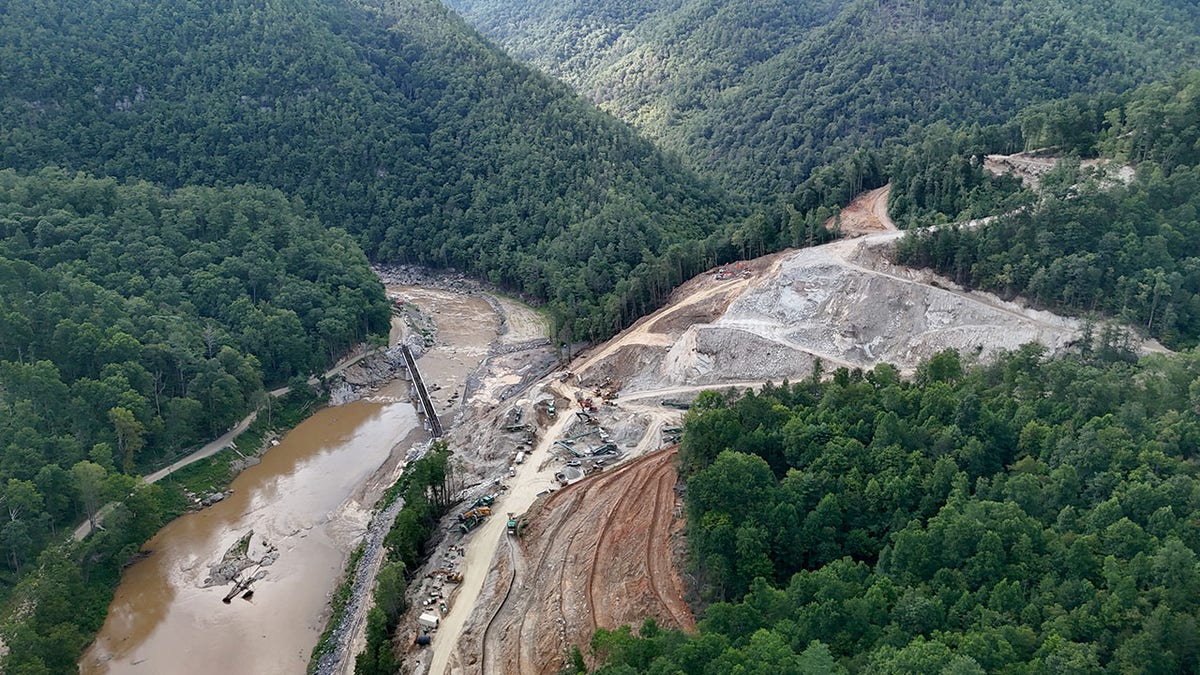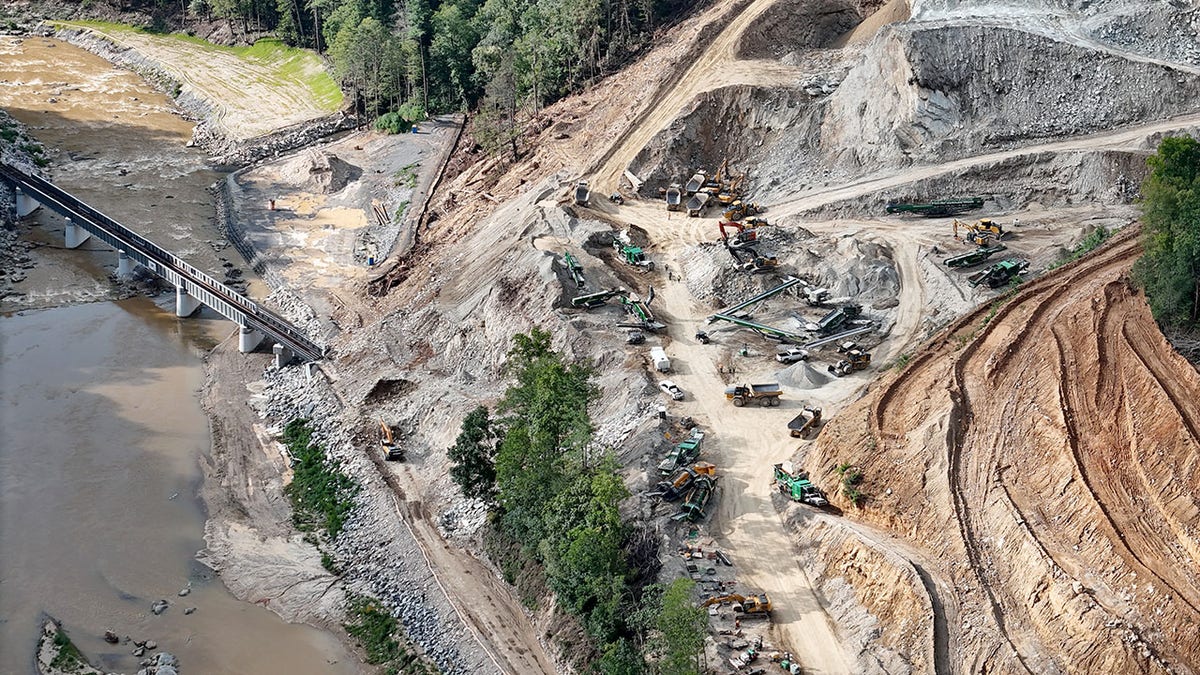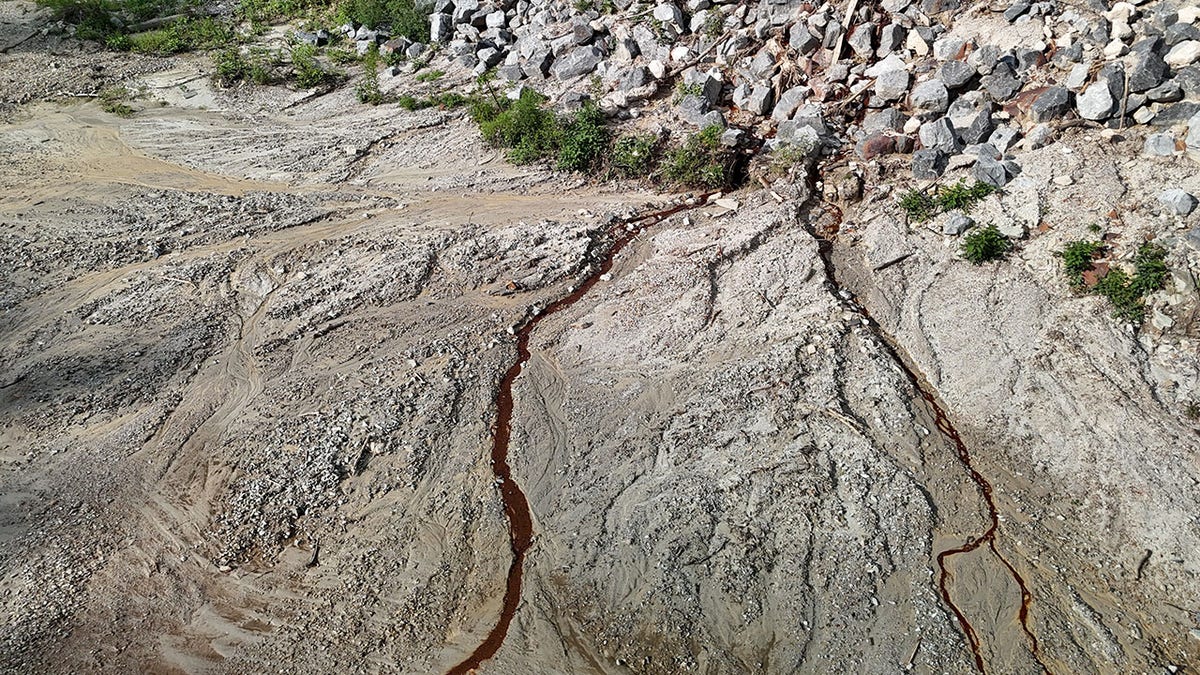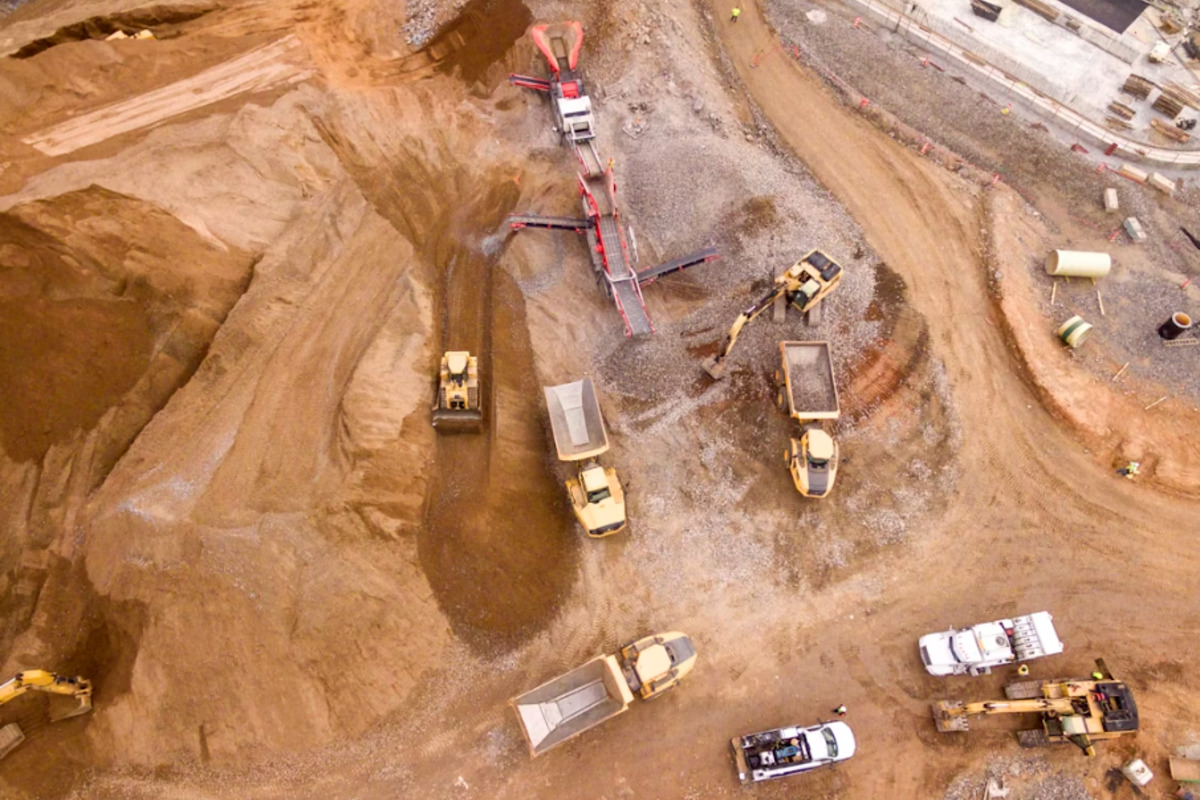
In the close-knit community of Poplar, nestled in Western North Carolina, residents have spent nearly a year grappling with a profound double challenge: the lingering devastation wrought by Hurricane Helene and the relentless encroachment of an alleged illegal mining operation. This confluence of crises has pushed a resilient population to its breaking point, as they witnessed their beloved Nolichucky River polluted and their air choked with dust, all while efforts to rebuild their lives continued. The frustration, palpable and widespread, has culminated in a significant legal victory that signals a crucial turning point for environmental justice in the region.
Angry members of this community recently journeyed to Boone, North Carolina, for a pivotal court decision concerning the mining activities at Carter Quarry. The company at the center of this controversy, Horizon 30, LLC, faced the prospect of a complete shutdown or the imposition of severe civil or criminal penalties. This legal confrontation underscored the deep anxieties felt by those who felt their pleas had long gone unheard, highlighting a pervasive sense of vulnerability in the face of unauthorized industrial activity.

On Friday, preceding the critical court hearing, the North Carolina Department of Labor (NCDOL) issued a definitive declaration. Their findings confirmed that the mining activities at Carter Quarry in Mitchell County were entirely unauthorized, a blatant violation of established state mining regulations. This official pronouncement provided significant validation for the community’s long-standing grievances, reinforcing their assertion that the operation was fundamentally illegitimate and harmful.
The North Carolina Justice Department, seizing upon these findings, immediately pushed for a criminal injunction against Horizon 30, LLC. State authorities were resolute in their assertion that despite receiving multiple warnings about the absence of necessary permits, the operation along the Nolichucky River had defiantly persisted for months. The resolve of the state to intervene legally underscored the severity of the alleged breaches and the perceived disregard for regulatory compliance by the mining company.

Indeed, recent drone images, shared by resident Leo Sharp, starkly illuminated the scale of the mining operation, which emerged in Poplar following Hurricane Helene. These visuals provided undeniable proof of an enterprise that the state had already deemed illegal, showcasing excavators and other heavy machinery continuing their work at the site as recently as this month. The imagery painted a vivid picture of industrial activity unfolding in the heart of a community still reeling from natural disaster.
The genesis of the state’s intervention offers a telling insight into the complexities of oversight. It was discovered after the federal Mine Safety and Health Administration requested that the NCDOL provide miner safety training at the site. During that visit, a state Labor Department official “identified multiple irregularities and immediately questioned whether the site had the required state environmental permit,” according to the department’s records. Horizon 30, LLC subsequently failed to produce the necessary documentation, triggering the cascade of enforcement actions.

Labor Commissioner Luke Farley lauded the diligence of his staff in a statement released on Friday. He emphasized, “This is exactly why I’ve made it a priority to support and empower our field staff.” Farley underscored that their “experience, judgment, and vigilance are critical to keeping workers safe and enforcing the law.” He further articulated a profound concern, stating that if his staff “hadn’t gone above and beyond their duty to protect workers, this illegal operation could have continued unnoticed – putting lives at risk and undermining public trust in our regulatory system.”
The community’s dismay extended far beyond regulatory non-compliance. Cody Johnson, an Army veteran residing in the affected area, voiced his strong condemnation of Horizon 30, LLC’s actions. He directly accused the company of exploiting “emergency protocols” – measures specifically intended for the critical task of rebuilding a railroad section damaged by the hurricane. Johnson’s words were a direct challenge to the company’s perceived duplicity, reflecting the deep sense of betrayal felt by many locals.
“Get out of North Carolina. We don’t want you here,” Johnson declared, his message unequivocally addressed to Horizon 30, LLC. He elaborated on his accusation, stating, “You came in under the guise of emergency protocols, trying to fool people – unethical.” This powerful denunciation underscored the moral outrage prevalent within the community, painting a picture of a company capitalizing on vulnerability rather than genuinely contributing to recovery efforts.

Horizon 30, LLC, registered in Allentown, Pennsylvania, according to records with both the North Carolina Department of the Secretary of State and the Pennsylvania Department of State, offered a different narrative. In May, as their permitting process faced significant delays, Horizon 30 CFO Sean Chipman penned a letter to the North Carolina Department of Environmental Quality (DEQ). In this correspondence, Chipman attempted to justify the company’s operations, claiming reliance upon “emergency permits, authorizations, waivers and other applicable allowances for services in support of the Emergency Railway Repairs.”
Chipman’s letter further invoked broader national initiatives, including those “in support of the America First initiative and energy independence, as well as prior and concurrent emergency response directives.” He maintained that the mining application was prepared “in conjunction with some of the leading professionals in the mining industry” and that the Army Corps of Engineers had conducted a review. Chipman also stated that the company had taken “corrective measures” to meet departmental requirements and “wishes to continue to have a good and productive relationship with your Department and the State.” However, attempts to reach Horizon 30, LLC for further comment on these claims were unsuccessful.

Residents, meanwhile, painted a starkly different picture of the company’s community engagement. They reported that Horizon 30, LLC had not employed locals, a point of considerable contention given the economic hardship in the post-Helene recovery. License plates observed at the Poplar site, hailing from distant states such as Louisiana, Texas, Kentucky, and Arizona, reinforced the perception of an external operation disconnected from the community it impacted.
The ecological toll was also a grave concern. Cody Johnson, living on approximately 80 acres, described the disturbing discovery of dead birds and other wildlife in the area since the mining operation commenced. This grim observation served as a stark indicator of the environmental degradation occurring in their immediate surroundings, adding another layer of urgency to the residents’ demands for cessation.

Tessa Sharp, another local resident, shared a particularly poignant and heartbreaking account of the direct impact on her family. She and her husband, Leo Sharp, who is a Navy veteran, witnessed the tragic deaths of 13 of their 14 rabbits, which they attributed to respiratory issues caused by the persistent dust. “It’s tragic,” Tessa said, her voice conveying the profound grief of losing cherished animals to the environmental fallout.
The Sharp family’s struggle was compounded by the fact that their home had sustained significant flooding damage from Hurricane Helene. They had endured living in tents and with relatives for ten months following the storm, a testament to their resilience in the face of adversity. Leo Sharp articulated the profound frustration of dealing with the illegal mining crisis while still grappling with the monumental task of rebuilding their lives. “This is a hurting community, and we didn’t expect to face more issues during construction,” he remarked, underscoring the added burden placed upon an already beleaguered population.




